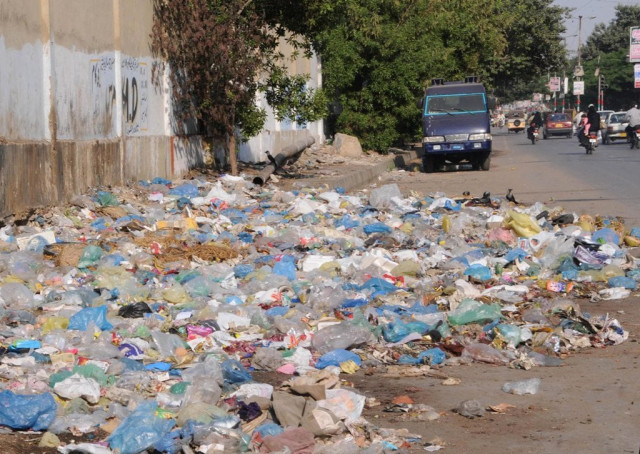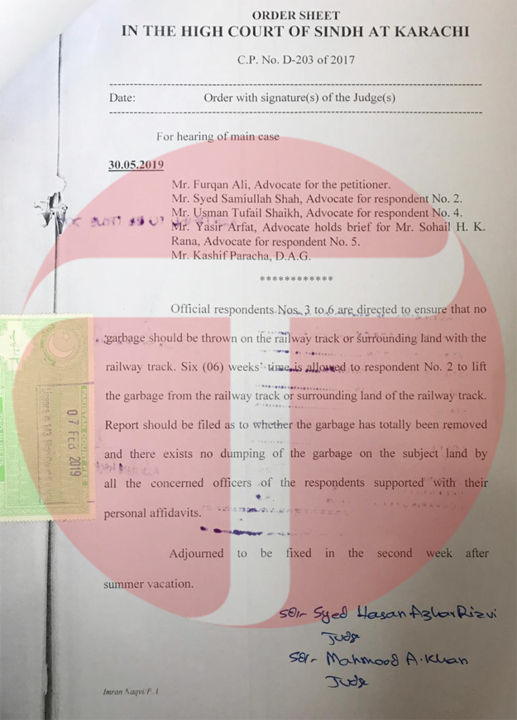SHC gives Sindh 6 weeks to clear garbage from railway tracks
SHC directs Pakistan Railways, Cantonment boards to ensure henceforth garbage is not dumped on tracks or surround area

Total waste generation of Karachi is about 12,000 tons per day. PHOTO: FILE
The high court also directed the division superintendent of Pakistan Railways and the chief executive officer of the Cantonment Board Clifton to ensure henceforth garbage was not dumped on the tracks and its surrounding lands.
At the end of the six weeks, the two-member bench comprising Justice Syed Hasan Azhar Rizvi and Justice Mahmood A Khan has sought reports from the respondents with an update of the cleaning process and confirming the removal of garbage from their respective areas.
The decision came on a civil petition filed by environmentalist Abdul Hamid Dagia highlighting the environmental and health hazards caused due to garbage dumping near populated areas surrounds railway tracks in the metropolitan city.
The petition lists Federation of Pakistan through chairman of the Ministry of Railways, Sindh government through its local government secretary, division superintendent of the Pakistan Railways, and CEOs of Karachi, Faisal and Clifton cantonment boards.

Sindh presents Rs1.14tr budget
A total of Rs1.7 billion had been allocated to the Sindh Solid Waste Management Board (SSWMB) for development expenditures in the 2018-19 fiscal year. In 2017-18 it was allotted Rs2.9 billion.
Although the Sindh Solid Waste Management Board Bill 2014 was passed by the Sindh Assembly in February 2014, the Karachiites are yet to see a functioning board.
As much as 2,000 tons of organic waste is produced in Karachi every day, said Sindh Solid Waste Management Board (SSWMB) Executive Director Asghar Mehmood at a seminar in April, 2018.
Last year, the Sindh home department imposed a ban on dumping household, industrial, commercial or hospital waste in open residential and commercial areas. The move came on orders of a Supreme Court-appointed judicial commission on water and sanitation.
The judicial commission, headed by Justice (retd) Amir Hani Muslim had taken notice of the practice of dumping waste in open spaces in the city, such as amenity plots and streets.



















COMMENTS
Comments are moderated and generally will be posted if they are on-topic and not abusive.
For more information, please see our Comments FAQ